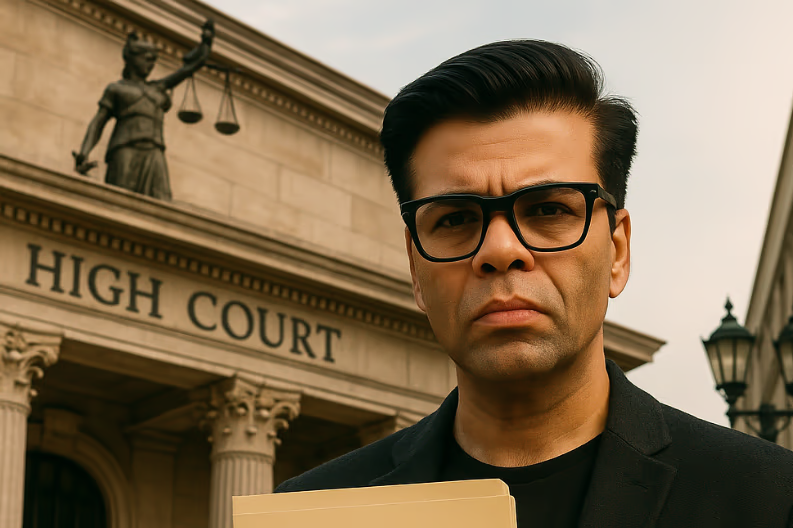Karan Johar seeks legal protection as he approaches the Delhi High Court to safeguard his publicity and personality rights. His move follows the relief granted to Aishwarya Rai Bachchan and Abhishek Bachchan last week, signaling a growing trend of celebrities turning to courts in the digital era.
His lawyer, Rajshekhar Rao, told Justice Manmeet Pritam Singh Arora that the misuse of celebrity names and images is spreading fast. He pointed to negative memes, fake promotions, and unauthorized merchandise, stressing that these practices cross limits and damage reputations. Johar objects strongly to people using his name for profit or ridicule without permission.
Rao admitted that Johar’s popularity keeps him in the public eye, even when people mock him. Yet he argued that free expression cannot justify harm to someone’s image. Justice Arora agreed that misuse is a problem, but noted that not every meme is offensive. She suggested social media firms should remove disparaging posts within 24 hours, balancing humor with protection.
The court has asked Johar to clearly state the actions he wants against such misuse. Legal experts see this case as part of a larger wave where celebrities assert their publicity rights, which give them control over commercial use of their identity.
The Delhi High Court’s earlier decision in favor of the Bachchans added momentum to this trend. As social media grows, stars gain wider reach but also face reputational risks from unauthorized and harmful content.
Bollywood is watching Johar’s case closely. A ruling in his favor could set a benchmark for handling such disputes. Justice Arora’s remarks show that the judiciary recognizes the unique challenges posed by digital platforms.
This case is about more than one filmmaker. It is about how India will handle celebrity rights in the online era. Karan Johar seeks legal protection highlights the urgent need for stronger safeguards in an age of memes, viral content, and fast digital sharing.



